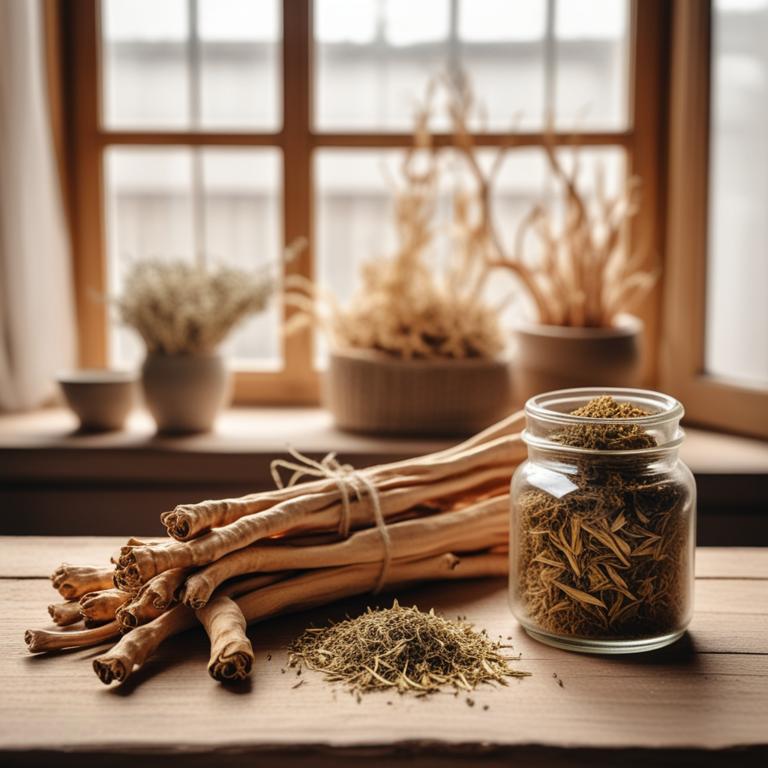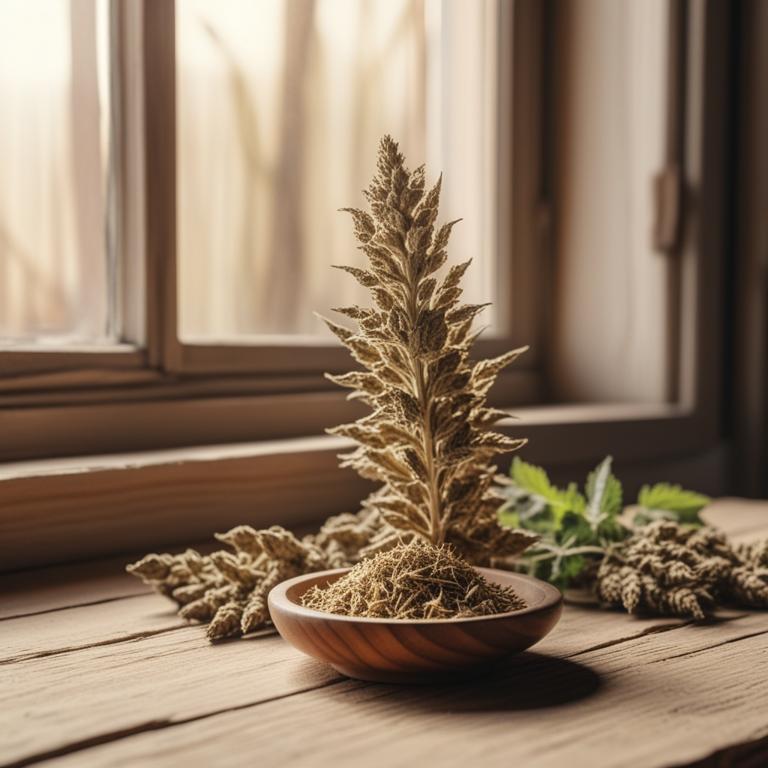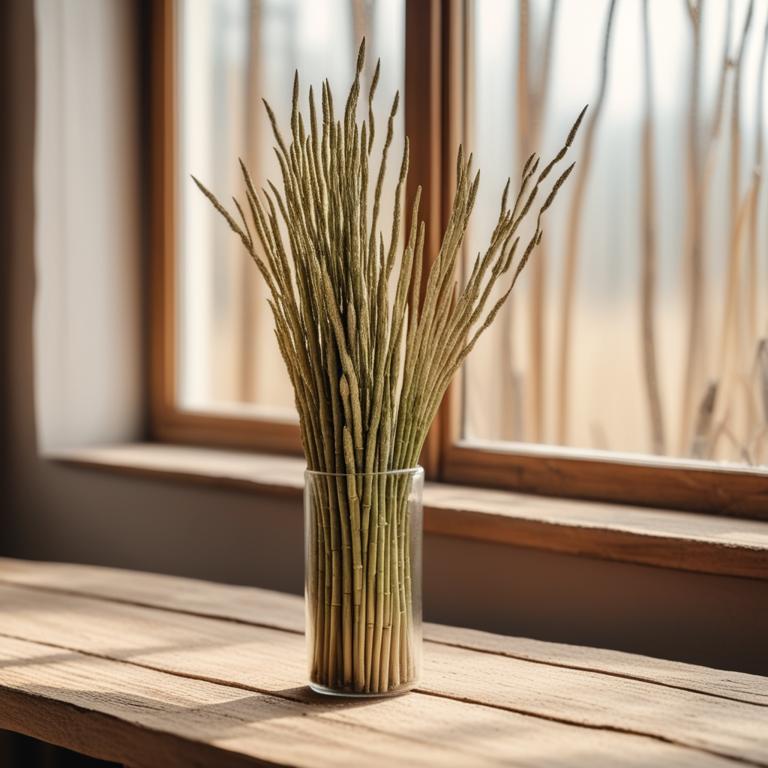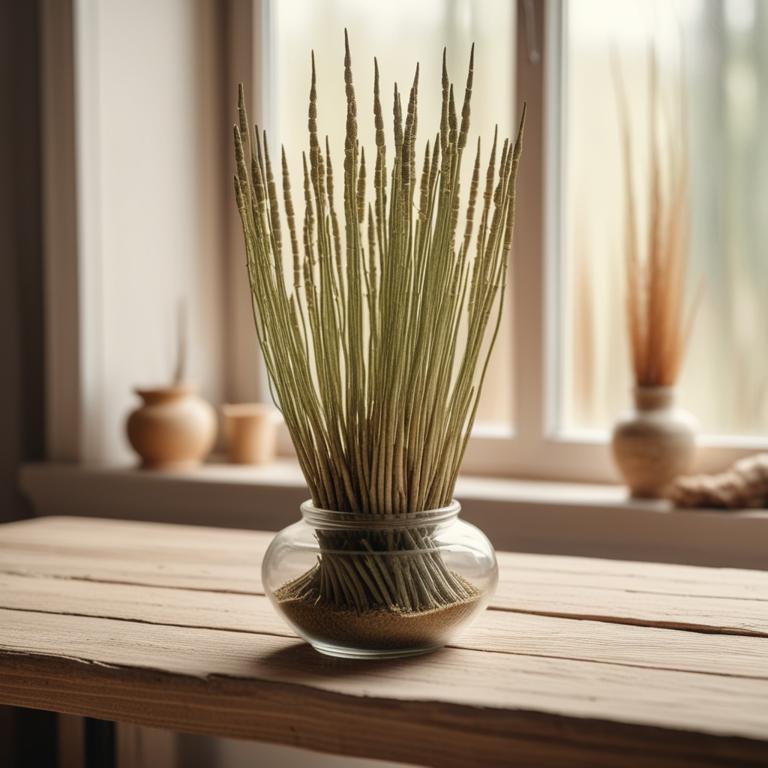Updated: Dec 1, 2024
Prostate Inflammation: Understanding Causes and Exploring Medicinal Herbal Options

Prostate inflammation, also known as prostatitis, is a common condition that affects millions of men worldwide.
It causes pain, discomfort, and difficulty urinating, making everyday activities a challenge. The inflammation is usually caused by bacterial or viral infections, but it can also be triggered by stress, poor diet, and lack of exercise. When the prostate becomes inflamed, the surrounding tissues can become irritated, leading to pain and discomfort in the pelvic area. It's not uncommon for men with prostatitis to experience fever, chills, and fatigue, which can impact their work and social life. If left untreated, chronic prostatitis can lead to long-term health issues and reduced quality of life.
Fortunately, herbal remedies have been shown to be effective in soothing and healing the prostate. Herbs like saw palmetto, stinging nettle, and pygeum have anti-inflammatory properties that can help reduce swelling and alleviate pain. These herbs can also help improve urine flow and reduce the risk of chronic prostatitis. To use these herbs, you can try drinking teas made from dried saw palmetto berries or stinging nettle leaves. Some herbal supplements, such as pygeum extract, can also be taken in capsule form. Additionally, you can try taking warm baths with herbs like chamomile and lavender to help relax and calm the prostate.
By incorporating these herbal remedies into your daily routine, you may be able to find relief from prostate inflammation and improve your overall health.
Table of Contents
- What are the causes and triggers of prostate inflammation?
- What benefits can be expected from using herbs to treat prostate inflammation?
- What are the primary natural treatments for prostate inflammation?
- Which herbal preparations are recommended for prostate inflammation treatment?
- Are there any herbs that could worsen prostate inflammation and should be avoided?
- FAQ
What are the causes and triggers of prostate inflammation?
The main causes of prostate inflammation are various and complex.
One common cause is Benign Prostatic Hyperplasia (BPH), a non-cancerous enlargement of the prostate gland that can put pressure on the surrounding tissues, leading to inflammation. Prostatitis, an infection or inflammation of the prostate gland, is another leading cause, often caused by bacteria such as E. coli or Staph.
These bacteria can enter the prostate through the urethra or bloodstream, triggering an immune response and inflammation. In some cases, tuberculosis (TB) can also infect the prostate, causing inflammation and damage to the surrounding tissues.
Fungal infections, although rare, can also cause prostate inflammation, often in people with weakened immune systems.
What benefits can be expected from using herbs to treat prostate inflammation?
Using herbs for prostate inflammation can provide several benefits.
One of the main advantages is that they can help reduce inflammation and swelling in the prostate, which can cause discomfort and pain. These herbs can also help improve urine flow and reduce the need to urinate frequently, which can be a problem for people with prostate issues.
Additionally, some herbs have been found to have anti-inflammatory properties, which can help prevent further damage to the prostate. They may also have antioxidant properties, which can help protect the body from cell damage and promote overall health.
Some herbs may also help improve hormone balance, which can contribute to prostate problems.
What are the primary natural treatments for prostate inflammation?
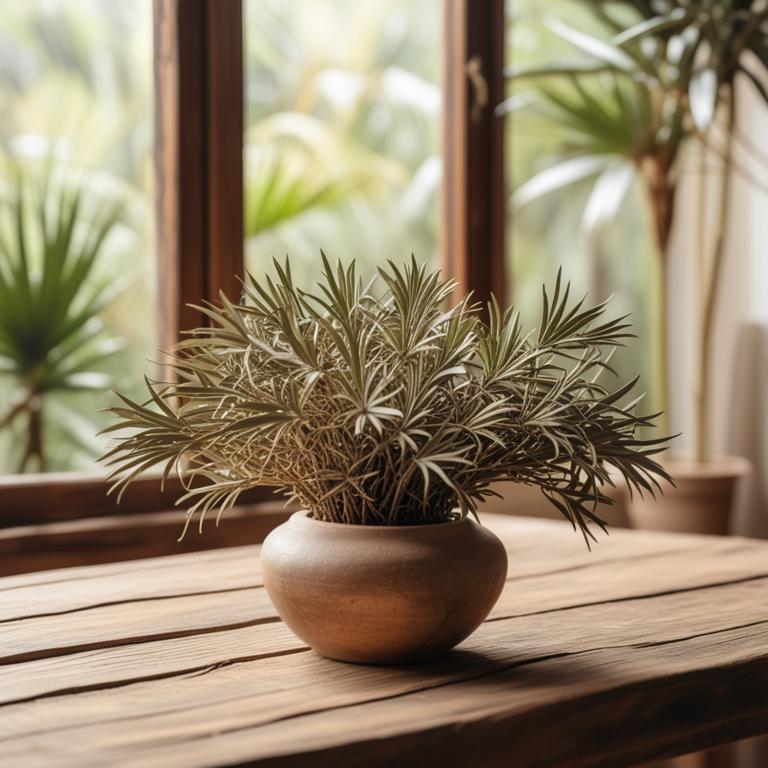
If you're experiencing prostate inflammation, there are some herbs that might help.
One of them is Serenoa repens, also known as saw palmetto. It's been shown to block the conversion of testosterone to dihydrotestosterone (DHT), a hormone that can contribute to prostate issues. Another herb that might be helpful is Curcuma longa, or turmeric. It contains a compound called curcumin, which has anti-inflammatory properties. Curcumin can reduce swelling and pain in the prostate, and it may also help to prevent cell damage. Urtica dioica, or stinging nettle, is another herb that's been studied for its potential benefits for prostate health. It may help to reduce the size of an enlarged prostate and alleviate symptoms like frequent urination. Some research suggests that nettle root extracts can even block DHT and reduce inflammation.
Ginger, or Zingiber officinale, is also worth looking into. It's a natural anti-inflammatory that can help to reduce pain and swelling in the prostate. Ginger has been used in traditional medicine for centuries to treat a range of health issues, including digestive problems and arthritis. Lastly, there's Pygeum africanum, or African cherry. It's been shown to reduce inflammation and alleviate symptoms of an enlarged prostate. Pygeum may also help to improve urine flow and reduce the need to urinate frequently. Some studies suggest that it may even help to prevent the progression of prostate problems. These herbs work in different ways to address prostate inflammation, but they all have anti-inflammatory properties and can help to alleviate symptoms.
By incorporating them into your diet or using them as supplements, you may be able to find some relief from prostate issues.
Which herbal preparations are recommended for prostate inflammation treatment?
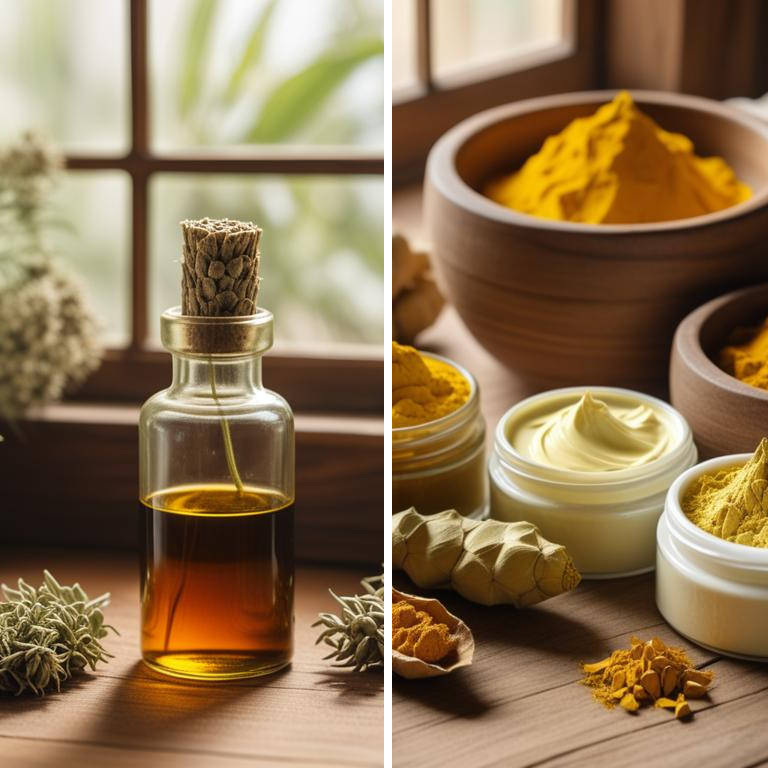
When it comes to prostate inflammation, herbal preparations can be a great way to find relief.
One popular method is a decoction - a liquid made by steeping herbs in hot water. This is good because it allows the herbs to release their active compounds, which can then be absorbed by the body. For example, saw palmetto decoction has been shown to help block the conversion of testosterone to dihydrotestosterone, a hormone that can contribute to prostate inflammation. Another option is a capsule, which is a convenient way to take herbs. Saw palmetto capsules, for instance, contain a standardized extract of the herb, which has been proven to have anti-inflammatory properties.
A tincture is a concentrated liquid extract of herbs, and it's often used to treat prostate issues. Stinging nettle tincture, in particular, has been found to have anti-inflammatory and antioxidant properties, which can help reduce swelling and pain in the prostate area. A cream, on the other hand, is applied directly to the affected area, making it a great option for topical relief. Saw palmetto cream, for example, can be applied to the prostate area to help reduce inflammation and discomfort. Finally, a suppository is a solid form of medication that's inserted into the rectum to provide relief from prostate inflammation. Saw palmetto suppositories, in particular, have been found to be effective in reducing prostate inflammation and improving urinary symptoms.
By providing targeted relief, these herbal preparations can be a valuable addition to a treatment plan for prostate inflammation.
Additional Resources:
Are there any herbs that could worsen prostate inflammation and should be avoided?
If you have prostate inflammation, it's a good idea to steer clear of certain herbs that can make things worse.
Ginkgo biloba, for instance, can thin your blood, which might increase the risk of bleeding in your prostate. This can be especially problematic if you already have inflammation. Ephedra sinica, commonly known as ephedra, is a stimulant that can raise your blood pressure and heart rate. High blood pressure and heart rate can put extra strain on your prostate, making inflammation worse. Hypericum perforatum, or St. John's Wort, is often used to treat depression, but it can also interact with medications that you're already taking for your prostate health.
This can lead to decreased effectiveness or even worsen the condition. Glycyrrhiza glabra, a licorice root, can cause your body to hold onto water, leading to swelling. This can put pressure on your prostate, making inflammation more severe. Viscum album, also known as mistletoe, can lower your blood pressure and make your blood vessels relax. While this might sound good, it can actually make it harder for your prostate to get the blood and oxygen it needs to heal.
This can prolong inflammation and make it harder to treat.
FAQ
Are there any specific herbs that can prevent prostate inflammation?
Some herbs that may help prevent prostate inflammation are saw palmetto and turmeric.
Saw palmetto is believed to block hormones that can cause inflammation in the prostate.
Turmeric contains a compound called curcumin, which has anti-inflammatory properties that can help reduce swelling and discomfort in the prostate.
Is it safe to use herbal remedies for prostate inflammation during pregnancy?
It's generally not recommended to use herbal remedies for prostate inflammation during pregnancy.
This is because some herbs can affect the baby's growth or cause other complications.
If you're pregnant and experiencing prostate inflammation symptoms, it's best to talk to your healthcare provider about safe treatment options.
Are there any herbs that can reduce the frequency of prostate inflammation?
Some herbs may help reduce the frequency of prostate inflammation.
Saw palmetto has been studied for its potential to block the conversion of testosterone to a form that can contribute to inflammation. It may also help reduce swelling in the prostate.
Turmeric contains curcumin, which has anti-inflammatory properties that could help alleviate prostate inflammation symptoms.
Can i combine different herbal remedies for prostate inflammation?
You can combine herbal remedies for prostate inflammation, but be cautious.
Some herbs interact with each other or with medications. For example, saw palmetto and stinging nettle might help reduce inflammation, but pairing them with licorice root could raise blood pressure.
Start with small amounts and monitor your body's response.
Related Articles
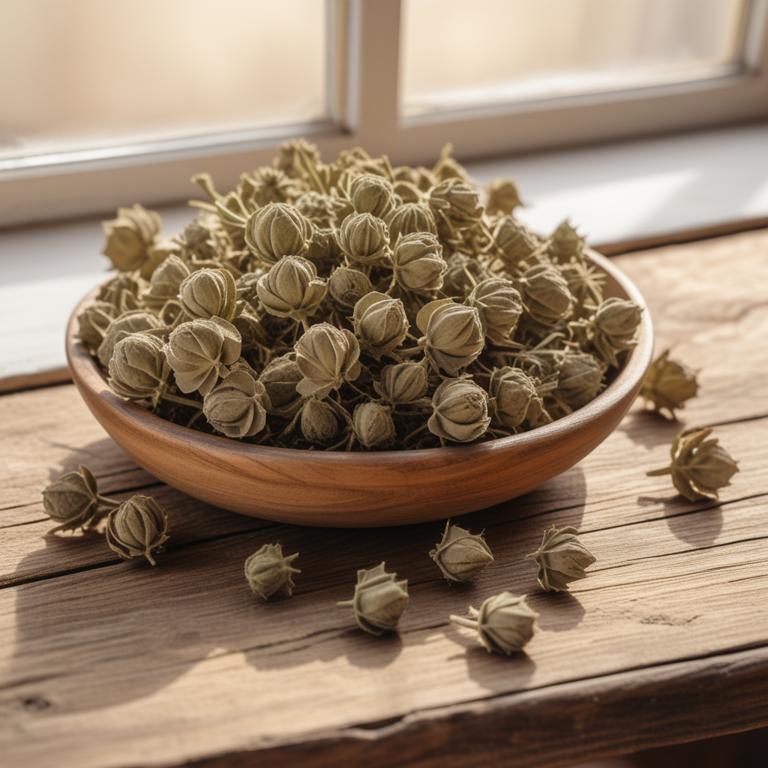
Urinary Calculus: Natural Causes, Herbal Remedies, and Prevention
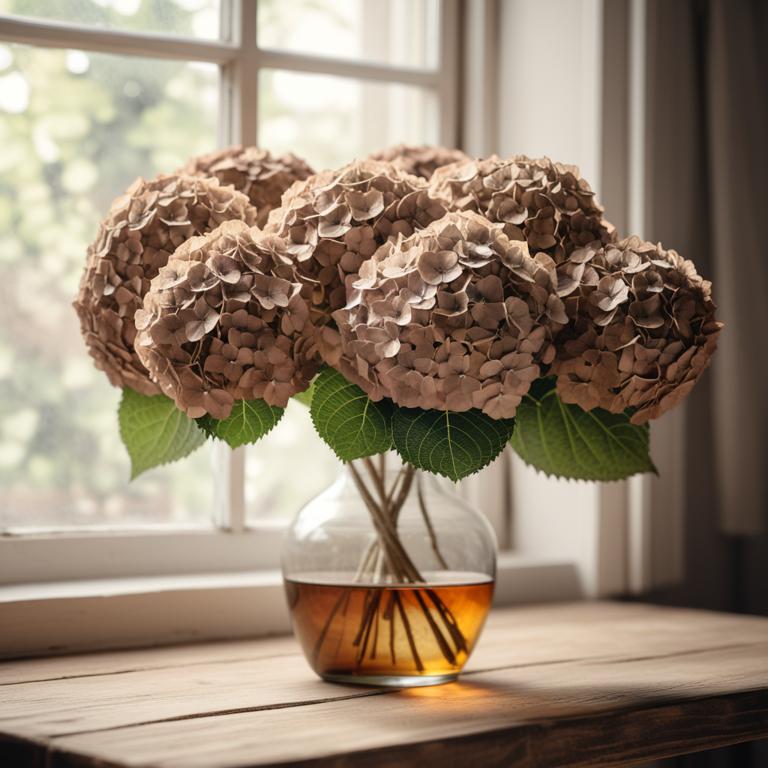
Bladder Infection: Understanding the Causes and Herbal Remedies
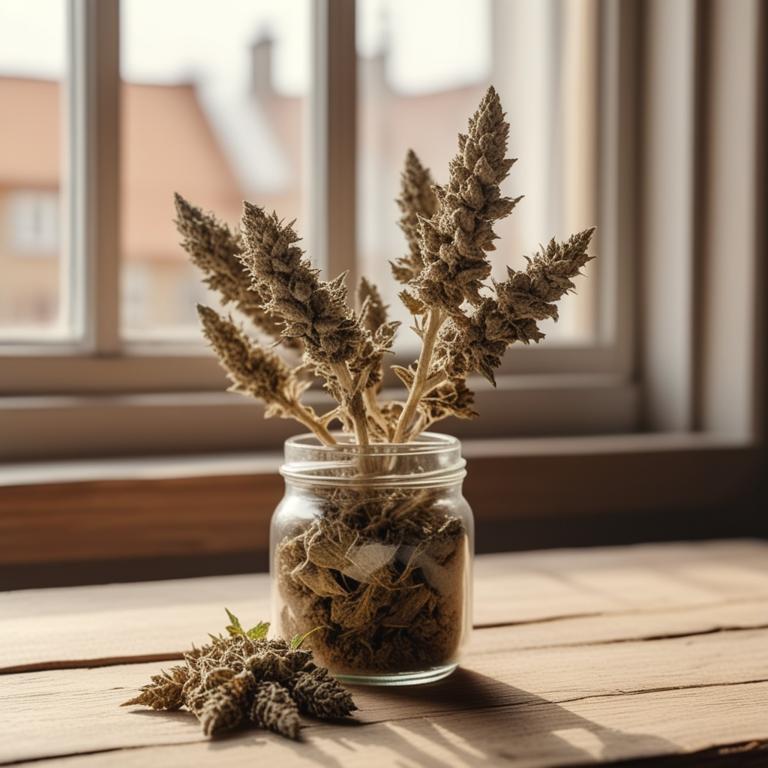
Overcoming Dysuria: Causes, Medicinal Herbs, and Herbal Remedies for a Healthy Life
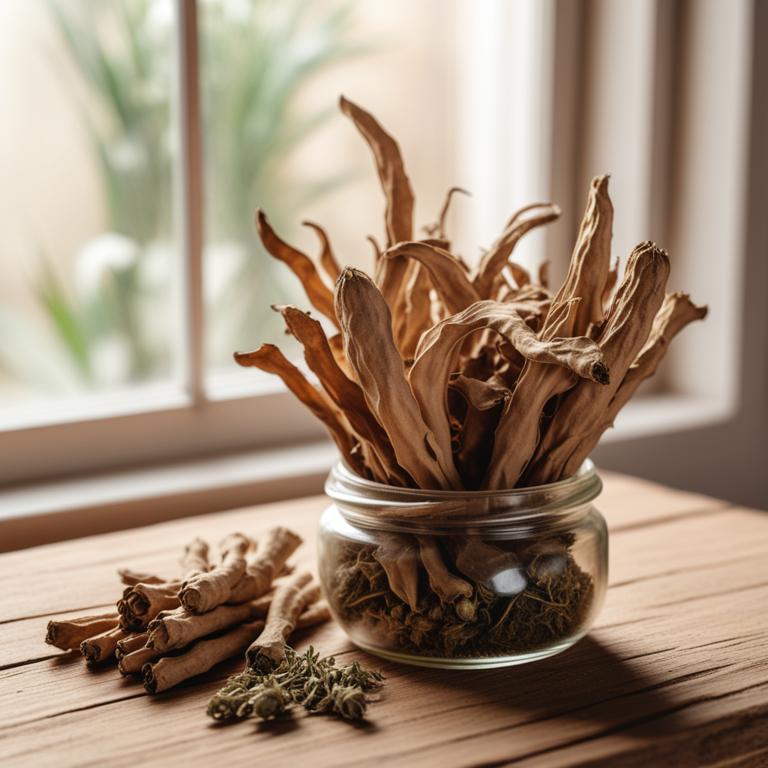
Benign Prostatic Hypertrophy: Understanding Causes and Herbal Preparations for Relief
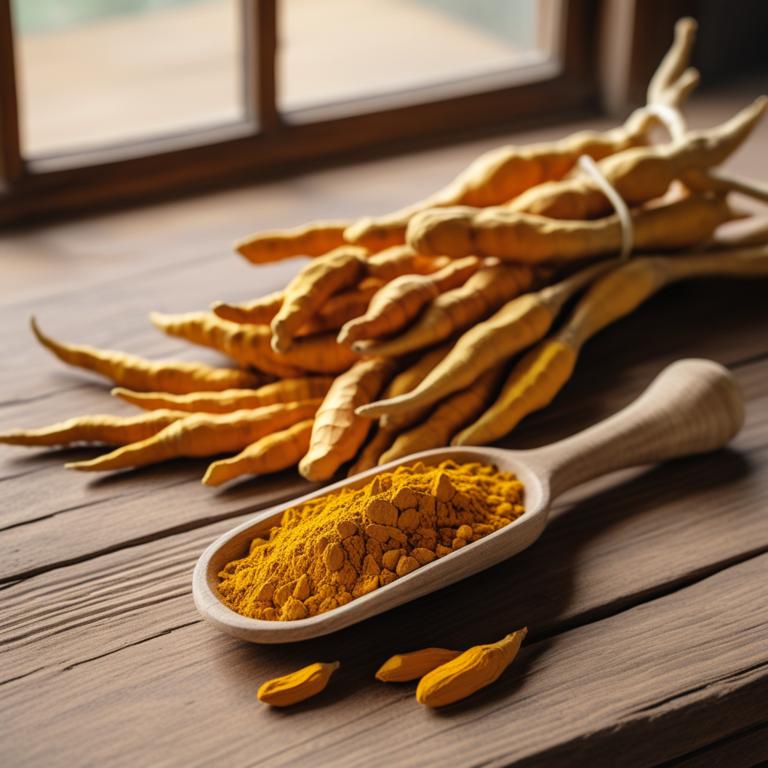
Causes and Treatment Options for Overactive Bladder Using Medicinal Herbs and Herbal Preparations
